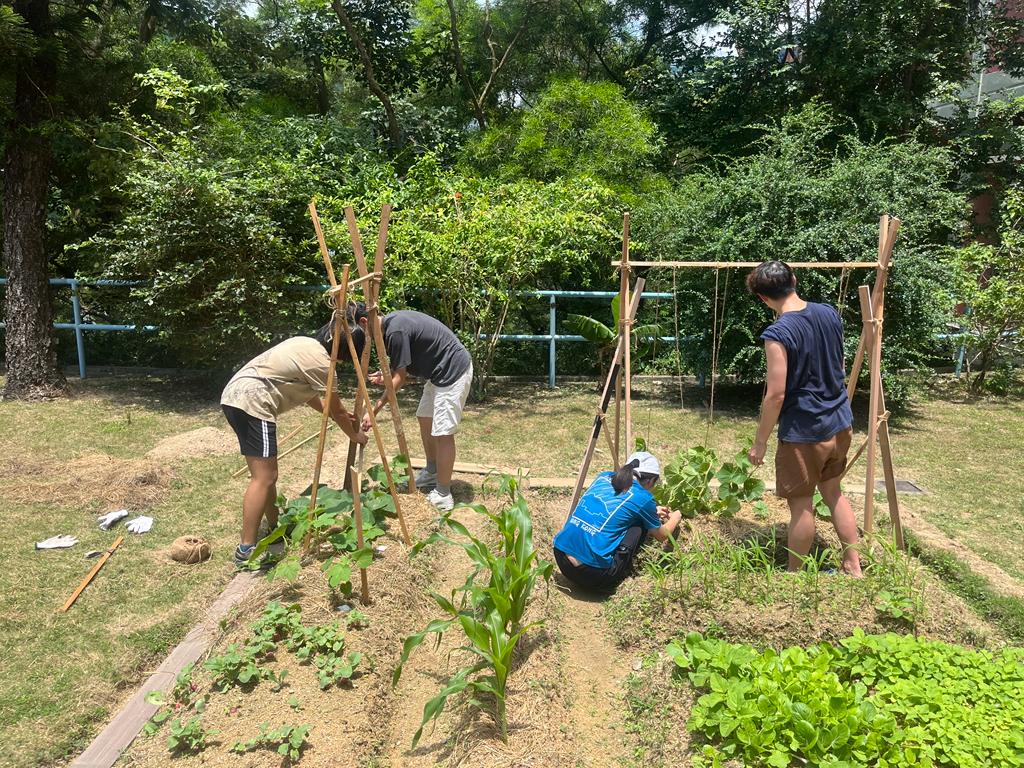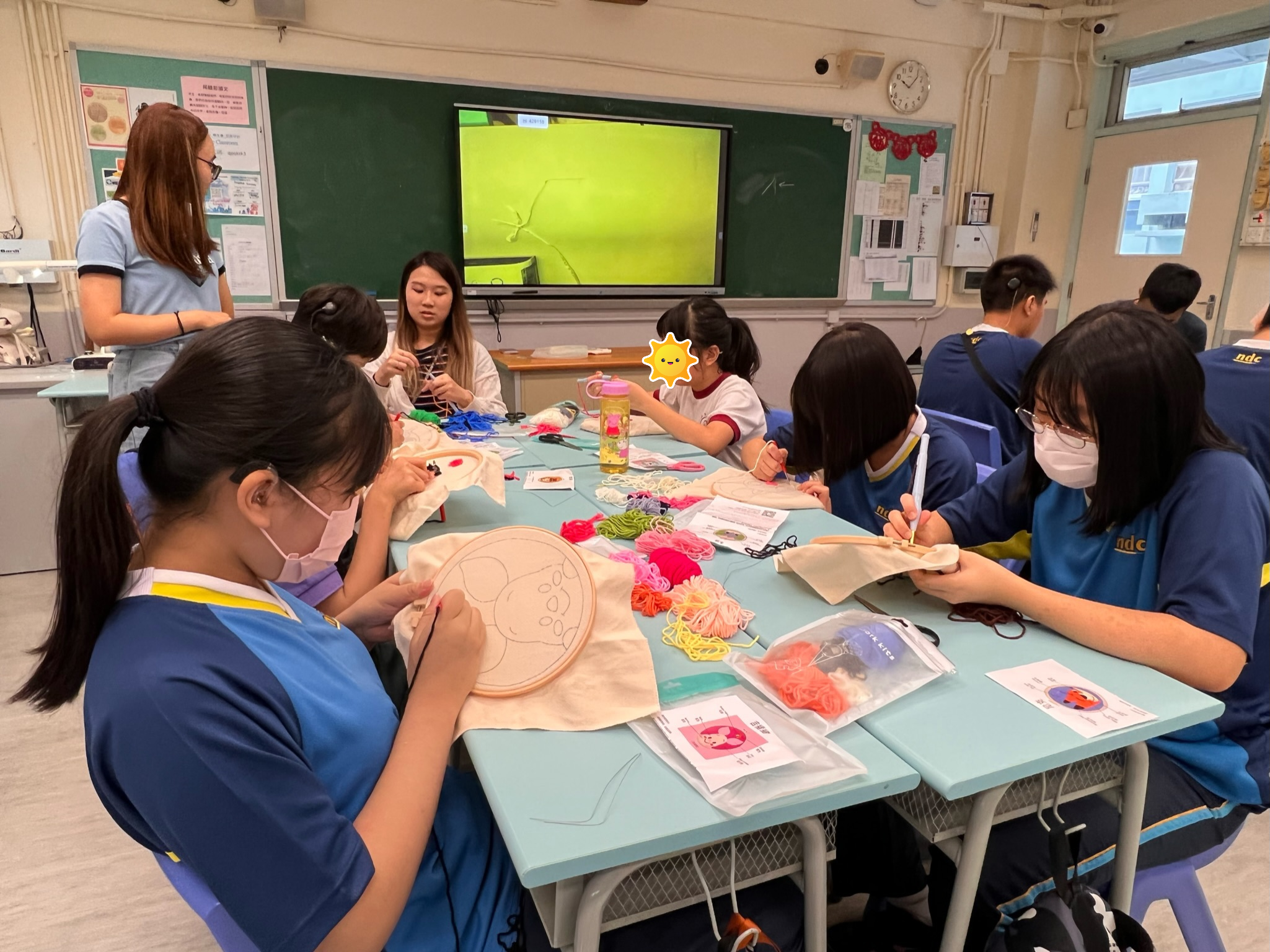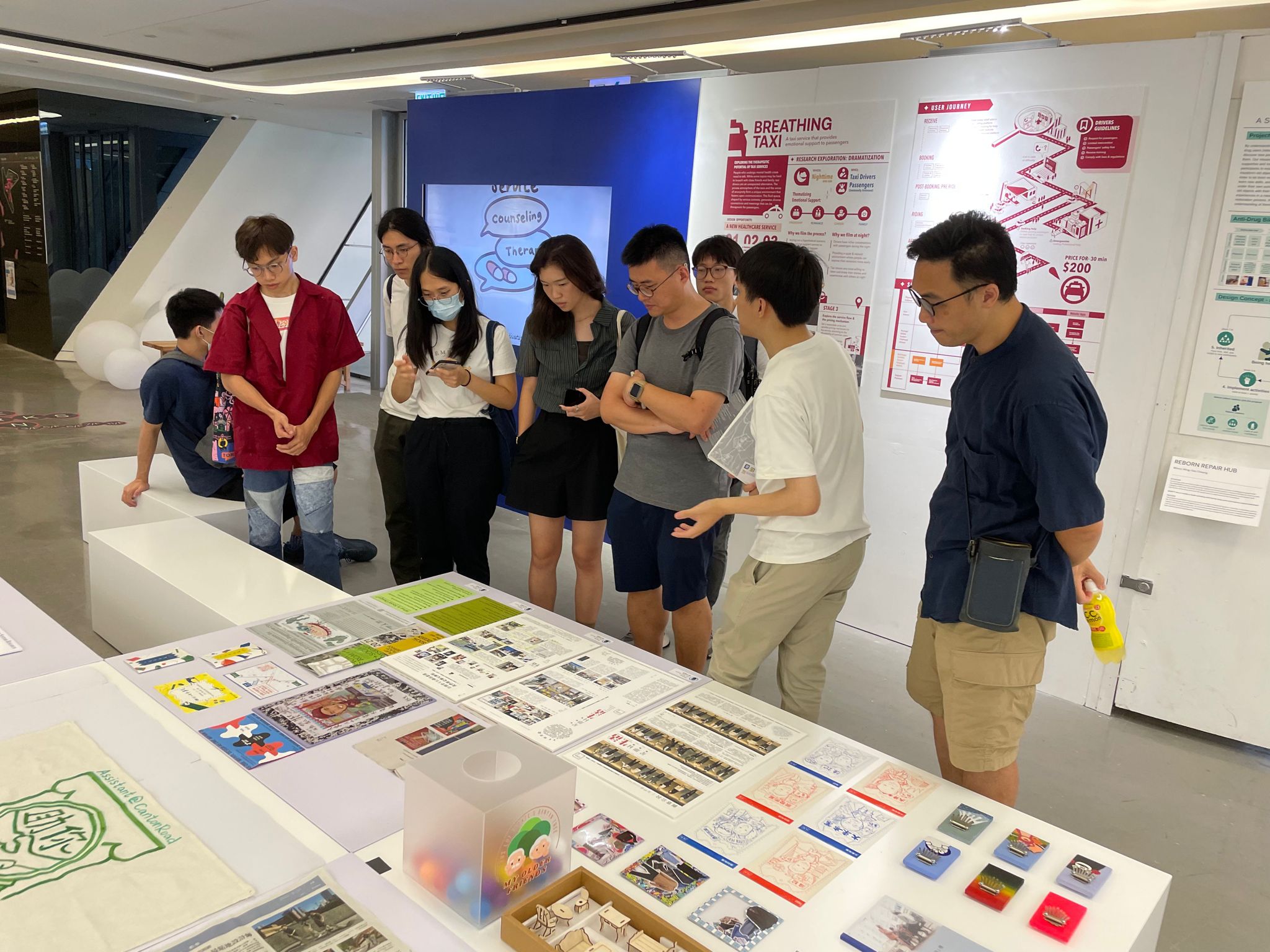
Upper-Year General Education Elective | 3 Units
|
|
 |
 |
 |
|
2026/2027 Service-Learning Programme Briefing Session Date: 23 January (Friday) | Time: 5:30-6:30 pm Venue: CK TSE Room (G/F) (Chung Chi Library) The Briefing Session will be conducted in Cantonese. Please register via the online form: |

Application
Application Period: 23/1 - 6/2 (2:30PM)
Application Form: Webform [click here]
In summer of 2025, CC students participanted in the following group services:
 |
 |
|
Students with Hearing Disability | Acknowledgment: SLCO Community Resources Limited Our goal was to support Deaf and Hard-of-Hearing (DHH) students by broadening their exposure to social topics and strengthening their English learning. We successfully sparked their curiosity and encouraged them to learn. We also gained insights into Hong Kong’s accommodations for DHH students, noting the differences between mainstream education and the dual bilingual programme in secondary schools. |
|
|
|
|
 |
 |
|
Ethnic Minorities | Acknowledgment: Ultimate United Hong Kong We designed activities tailored to their needs, covering four themes: Health & Nutrition, Chinese Culture, Microbiology, and Mini Society. Our goal was not only to educate but also to foster belonging, self-worth, and a positive attitude toward growth. |
|
 |
|
 |
 |
|
Community Bridging | Acknowledgment: Loday Culture We found that cleaners are often ignored, discriminated against, and lack protection for their rights and safety. To address this, we co-designed card games with cleaners to create an equal dialogue platform, amplify their voices, and foster empathy among participants, aiming to improve the imbalance of rights. |
|
 |
|
 |
 |
|
Rehabilitated Substance Abusers and their Families | Acknowledgment: LC-HKs Rainbow Lutheran Centre Our service targets mothers and youth undergoing drug rehabilitation. Through positive activities such as dessert making and bouldering, we help them express their feelings, rebuild trust between parents and children, and gain support. |
|
 |
|
 |
 |
|
Scavengers-Group 1 | Acknowledgment: Mission to New Arrivals Limited We conducted a public survey to explore the feasibility of legal recycling spaces and citizens’ concerns. Results show that most people hold a neutral view toward scavengers in public areas and tend to support government provision of legal recycling spaces. We hope this study will spark reflection and discussion on balancing environmental, community, and scavengers’ needs in urban planning and sanitation enforcement. |
|
 |
|
 |
 |
|
Scavengers-Group 2 | Acknowledgment: Mission to New Arrivals Limited We focus on social issues related to scavengers, analyzing differences, effectiveness, and limitations of public education with and without scavenger participation, and assessing its impact on reducing stigma. We believe greater attention should be given to this group to enhance public understanding and respect. |
|
 |
|
 |
 |
|
Oyster Reef Ecological Conservation-Group 1 | Service Partner: The Nature Conservancy (TNC) 🌟 |
|
|
This Service-Learning experience has deepened our understanding of conservation. In the past, ecological conservation was merely a distant concept from textbooks. But through hands-on immersion in the oyster industry, we have gained a more authentic and profound awareness of conservation. 💡We hope that environmental protection is not just an action—it’s a transformation in lifestyle and attitude. 💪
|
|
 |
 |
|
Oyster Reef Ecological Conservation-Group 2 | Service Partner: The Nature Conservancy (TNC) 🌟 |
|
|
Through this Service-Learning experience, we discovered that oysters are nature’s ater purifiers, improving marine ecosystems, sustaining family businesses in Lau Fau Shan, and preserving a 700-year-old cultural heritage. But the industry faces big challenges: climate change, typhoons, an ageing workforce, low profitability, and import competition. Despite this, oyster farmers and researchers are exploring solutions like eco-tourism and shell recycling. We believe government support and community participation are key to revitalising the oyster industry and protecting our environment. Let’s raise public awareness and keep this heritage alive! 💪 🌍 |
|